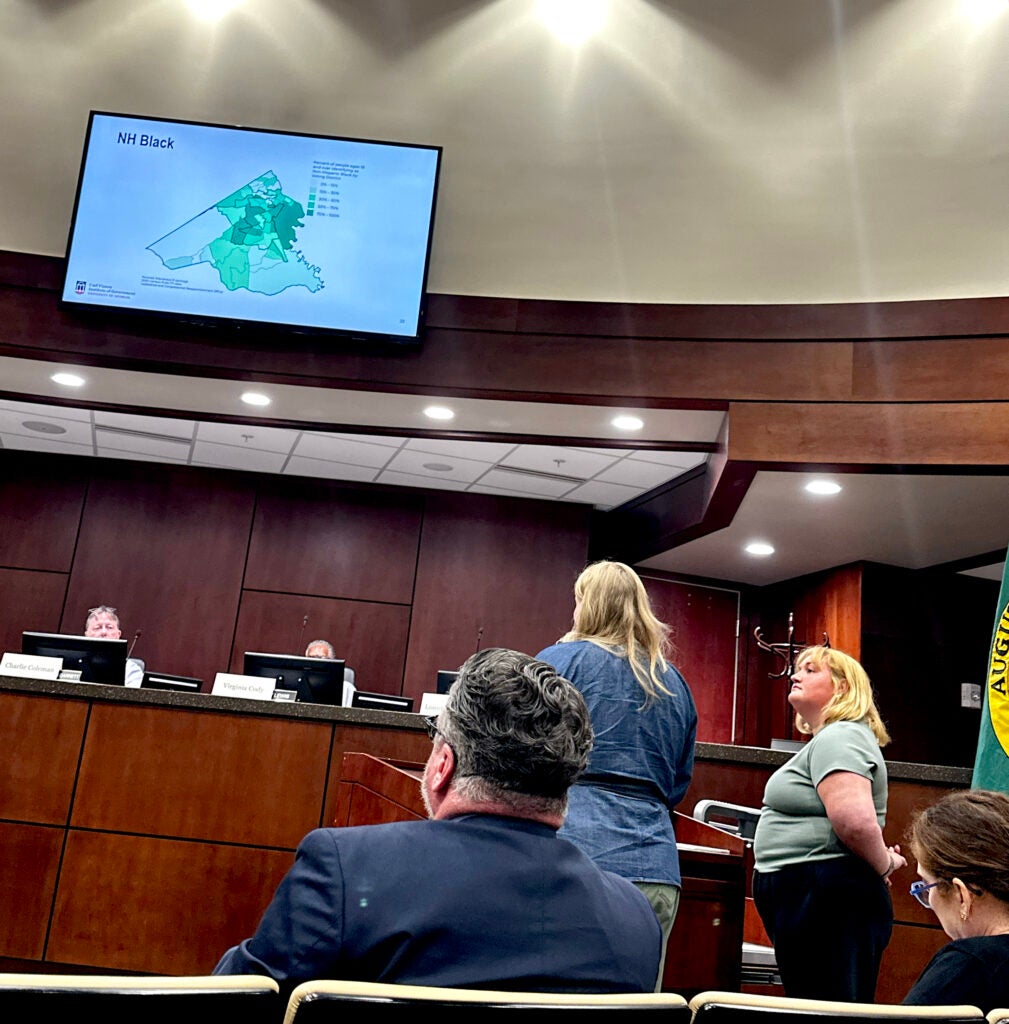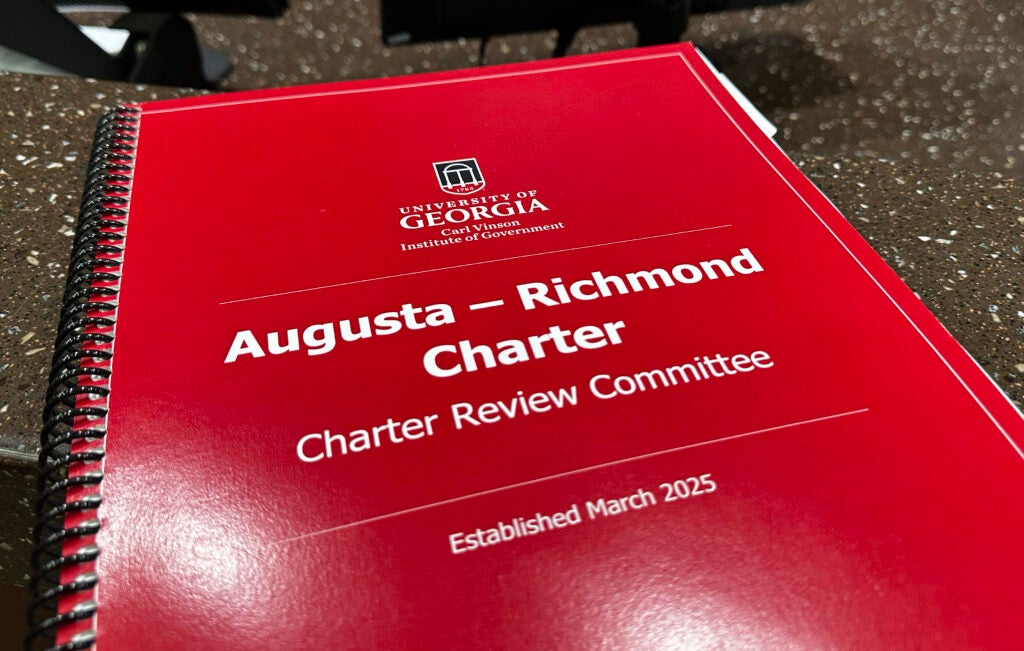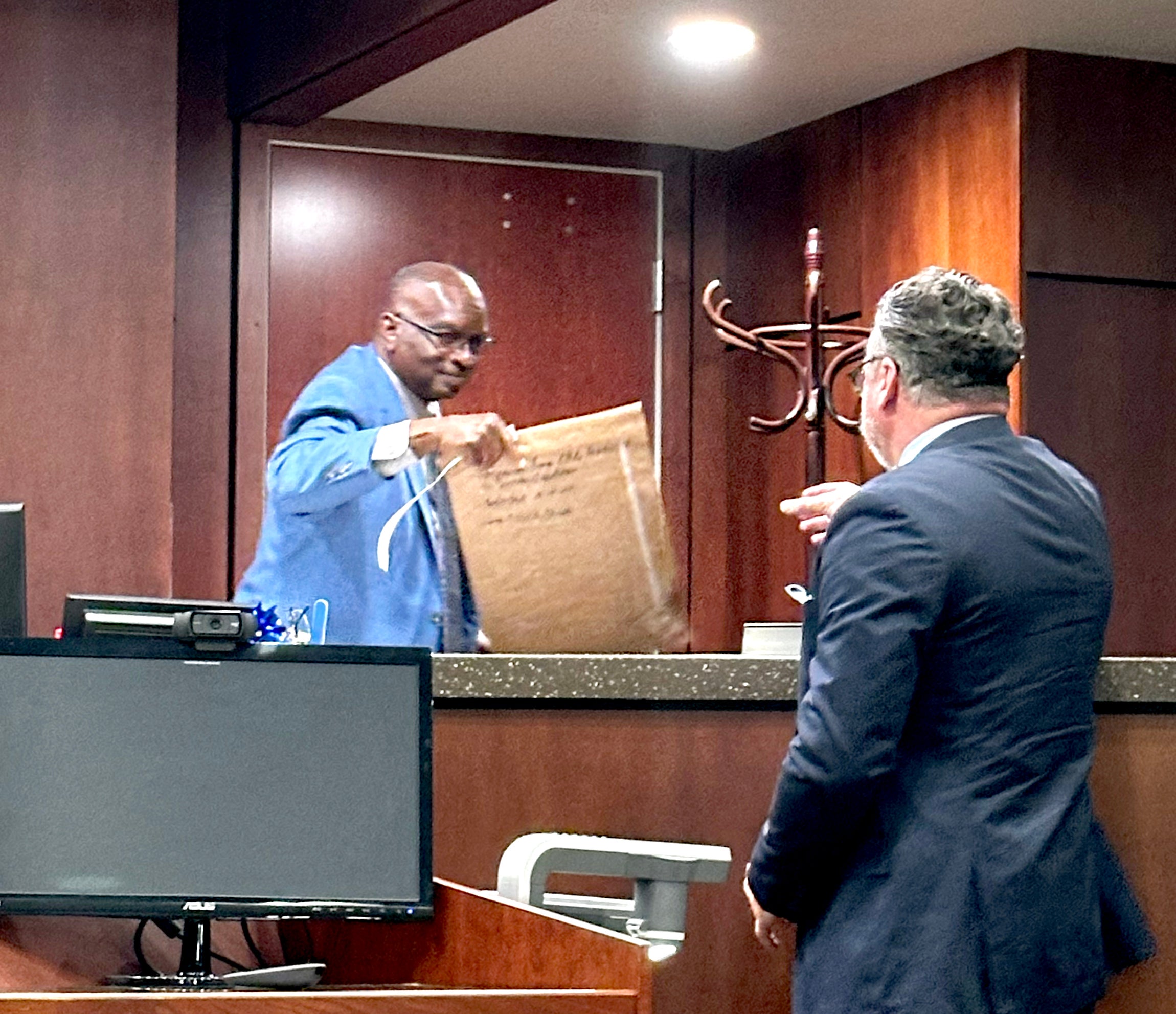Augusta’s charter review committee established two official spokespeople and looked at the racial makeup of commission districts during its fourth meeting Thursday.
The committee designated Chair Marcie Wilhelmi and Vice-Chair Tanya Barnhill-Turnley as spokespeople. The motion passed 9-1 with member Angela Bakos opposed and member Marvin Cole absent.
Member Charlie Coleman introduced the idea, saying a single spokesperson would make the committee appear “more professional,” but added it was not intended to silence other members. Bakos supported the idea of official media statements but said members should still be able to share their own views.
The committee also approved a formal public comment process. Members agreed to allow comments at the beginning of each meeting, limited to five minutes per speaker.
Committee members submitted their anonymous responses to a survey about what should or shouldn’t be changed in the charter. The completed surveys were placed in an envelope and handed to Rex Facer of the Carl Vinson Institute of Government, which the Augusta Commission hired to assist with the review.

Census data highlights racial composition
The Vinson Institute also presented demographic findings from the 2020 U.S. Census. Research assistant Macey Lane Smith said Augusta is 55.2% Black.
Fellow researcher Belle Tolmich broke the data down by commission district, and included details such as the following:
- Six districts (1, 2, 4, 5, 6, and Super District 9) are at least two-thirds Black.
- District 4 has the city’s highest Hispanic population at 9.2%.
- District 3 is evenly split: approximately 44% white and 44% Black, according to Tolmich’s presentation.
- District 7 is about 56% white and 30% Black.
- District 8 is 53% white.
- Super District 10 is about 44% white and 43% Black.
Former Commissioner Ben Hasan, asked to speak about the matter, noted that the current charter aimed for a 5-5 Black-white split on the commission. The balance shifted over time, most recently becoming 6-4 in favor of Black members following Hasan’s 2014 election.
Coleman asked whether Augusta still needs its two super districts, which span four regular districts each. Hasan said while the setup might appear excessive, other jurisdictions have both county and city representation and typically exceed 10 total elected officials.
Charter content raises concerns

Attorney Lori Brill of the Vinson Institute addressed earlier questions about the charter’s structure. Committee members have been provided with bound copies containing the original Consolidation Act as well as material added later.
Brill said Augusta’s charter includes unusual material not typically found in such documents, such as salary details, excerpts from the Georgia Constitution and information about state and superior courts.
Brill said some sections contradict each other, and speculated that the document “might have been put together rather quickly.”
Public speakers urge more time
During the public comment period, Hasan said he was “appalled” by reports the committee may be pressured to finish its work by December. The shorter timeline was discussed at the previous meeting.
Rev. James Williams, a plaintiff in a 2011 lawsuit against the city over alleged charter violations, urged the committee to allow 12–18 months for its work. “Any less time would be an injustice,” he said.
Former Commissioner Moses Todd recalled his role in the 1995 task force that helped implement city-county consolidation, noting some members are still active and could provide perspective.
Committee member Clarence Lee Powell said any move toward a “strong mayor” system would require new checks and balances, which he said the current structure lacks.
Todd responded that the commission already provides balance through its six-vote requirement for action.
Former Commissioner Marion Williams also addressed the committee.











